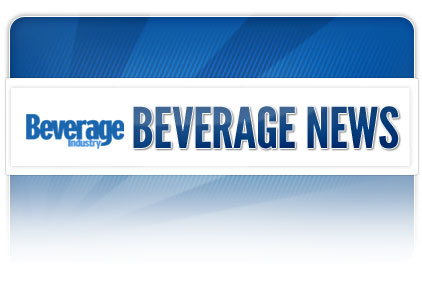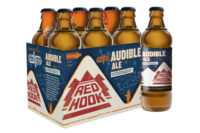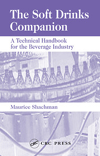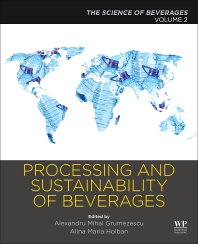Redhook Brewery integrates dry-conveying model
New system helps craft brewer approach its sustainability goals

Woodinville, Wash.-based Redhook Brewery, a part of the Craft Brewers Alliance (CBA), has seen its water savings add up following the integration of a dry-run bottling conveyor from Emerson Power Transmission Solutions.
By converting its Redhook Brewery bottling line to a dry-running System Plast New Generation (NG) conveyor chain and Nolu-S wear track, the operation has eliminated 111,000 gallons of water and 675 gallons of soap for lubricating stainless steel chain. The lightweight, low-friction (LF) chain and dry operation yield savings on energy and maintenance and prevent damage to bearings, sensors and concrete floors too, according to Kurt Schmidt, maintenance manager for Redhook. Friction is so low that “dry lube” is unnecessary as well, he says.
“As a brewer, we have a special interest in water sustainability, which certainly drove this project, but the dry conveyor stands on its own merit by reducing slip hazards, energy, maintenance, water, soap and chemicals to treat discharge water,” Schmidt says. “Even with a partial installation, we have cut water use 60 percent and eliminated cleaning the conveyor after every shift.”
The switch to a dry bottling conveyor at Redhook is part of a larger set of five-year sustainability goals that CBA established in 2009. According to the company’s latest sustainability report, CBA saved $600,000 in 2013 through water re-use/reclamation, advanced lighting and energy management, use of solar energy, use of lighter-weight glass bottles, recycling and diverting 99.4 percent of waste from its Portland brewery, and recycling 100 percent of the plastic from Redhook's Portsmouth plant. CBA today uses just 4.73 gallons of water per gallon of beer, and its Portland brewery already is an industry leader at just 4.07 gallons of water per gallon of beer. “In 2013 alone, we cut water use 3.7 percent company-wide for each gallon of beer produced,” said Julia Person, CBA sustainability manager, in a statement. “Sustainability goals are key performance indicators for our business, and we keep a close eye on them.”
The changeover to a dry-runningconveyor at Redhook is part of a bottling line overhaul that started with resurfacing the floor in the area with an epoxy/aggregate material in December 2013. “Our floor had been badly damaged from years of water puddling and cleaning; it was eroded an inch into the concrete in some places,” Schmidt explains. “Our Krones bottling line had a stainless steel chain on it that was about 12 years old. It needed soap-and-water lubrication spray, which damaged bearings, reducers and sensors, not just the floor. The steel chain builds up slime, then spreads it around and requires daily washing with an antimicrobial, all of which add to cost.”
Line layout
The bottling line runs 20 hours a day, four days a week, typically at 425 bottles per minute. At its fastest single-lane throughput, it runs about 150 feet per minute. Bottles enter the line from an uncaser, while the empty cases follow the bottles on a parallel conveyor to the case packer at the end. The bottles are mass conveyed about 200 feet, through several 90-degree turns, across a static transfer plate, and into a combiner where they are single-filed at a higher speed through the filler. They are mass conveyed afterward about 100 feet, nesting four-to-five wide, until a combiner again single-files the bottles for the labeler. The bottles are then mass conveyed 100 feet farther to the case packer.
“Our goal from the start was to increase our overall efficiency,” Schmidt says. “We knew there were better options than going with a new stainless chain. I had used standard LF acetal chain for dry operation at another brewery, but the application involved large plastic trays, not bottles, so it was quite different. We were leaning toward LF, but then [we] learned about the System Plast chain and Nolu-S wear strips. These are different, slicker materials, developed specifically to allow dry running, high-speed operation.”
Unique plastic chain kicks acetal
System Plast New Generation (NG) chain is made of a proprietary high-performance polybutylene terephthalate PBT thermoplastic with a low coefficient of friction. The flat conveyor chain lowers power consumption and noise and increases chain life up to 50 percent in some applications. Nolu-S wear strips and guides enable reduced-lubrication, high-speed operation. They are made of a unique compound of ultra-high-molecular-weight polyethyleneUHMW-PE with a solid lubricant. The combination of NG chain and Nolu-S wear strips has a dry coefficient of friction of just 0.13 — a fraction of traditional chains in steel and LF acetal — thereby reducing the conveyor's energy requirements by up to 30 percent.
Production imperatives at Redhook prevent a prolonged shutdown, so the change to the new plastic chain has been done in phases. “We tear out everything down to the frame and modify it if we think [it’s] necessary,” Schmidt explains. Key drive components, such as bearings, sensors, sprockets and gear drives are all replaced, he says.
Lightweight chain with heavyweight advantages
“We use System Plast magnetic tracking chain into and out of the labeler,” Schmidt says. “The radii allow lifting the chain out of the track for easy cleaning underneath. Typically, there's a tab that locks the chain down so you can't clean under it. The radii are also designed with a one-piece supply and return, so there's no gap where debris can collect, as we had with the stainless steel chain. The lift-out design and lightweight plastic chain win fans from both installers and operators. Light weight and low friction also mean it takes less energy to pull this chain. The overall smoother conveying motion of this chain has reduced downed bottles and jams too, another plus for operators.”
The revamped line also utilizes System Plast mounted bearings with backside seals, end caps andstainless steel inserts designed to withstand brewery chemicals and cleaning solutions.
Goal is in sight
As of spring 2014, the Redhook bottling line is 100 percent dry from the uncaser to the rinser, with some sections of old chain still to be replaced. “This line was originally designed to run wet-lubricated stainless steel chain, so converting to dry plastic chain inevitably involves fine tuning each new section as we go dry, and we're in that phase now, using water without soap in specific areas until we can tweak the line in those spots,” Schmidt explains. “There are cultural changes for the operators to work through too because they need to be weaned off dependence on water/soap lube. Nevertheless, there are a lot of smiles about smoother line operation, vastly reduced washdown requirements, the end to weekly greasing of bearings [and] slip hazards, and [an] overall drier workplace. We eliminated 30 percent of our washdown on day one, and we're building on this. We no longer need chemicals to adjust the pH of our discharge water either.”
The sound level, which was 95 dBA on the bottling line, is now approximately 91 dBA. “When we're running bottles, there's the inevitable clinking, but the underlying noise from [the] metal conveyor chain and water-damaged bearings is gone.” Schmidt say.
The cost for the new conveyor components — inclusive of everything — is about the same as needed for an overhaul using stainless steel chain. “Few in the industry think about the hidden costs of a wet line with its soap, water, pumps, tubing; chasing down leaks in the plumbing; slip hazards; daily washdowns; or the drip pans obstructing the underside of the conveyor for service work,” Schmidt says. “Water sustainability is just the tip of the iceberg when you convert to a dry conveyor. The real payoff comes when you stop soaking your equipment and plant with water all day long.”
The changeover won't be complete until the pumps, plumbing and nozzles for the water spray system are removed, along with the drip pans, he adds. “This is what we'll appreciate most at our end of the business,” he noted.
The mobile app System Plast Conveyor Solutions Calculator is available to determine a conveyor's water and energy savings potential in specific line layouts. The app is available on the powertransmissionsolutions.com website under the "Resources" tab or through iTunes.
Emerson Industrial Automation (emersonindustrial.com), a business of Emerson, provides automation and power-generation technologies and services to a wide range of industries. The Craft Brew Alliance is an independent, publicly traded craft brewing company comprising Widmer Brothers Brewing, Redhook Brewery, Kona Brewing Co., Omission Beer and Square Mile Cider Co.
Looking for a reprint of this article?
From high-res PDFs to custom plaques, order your copy today!







